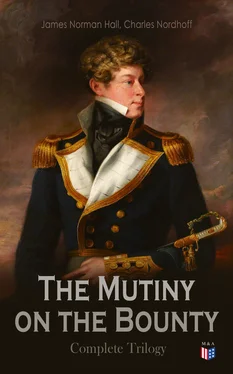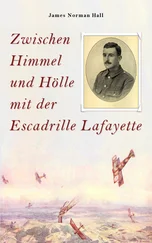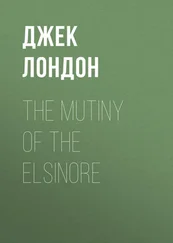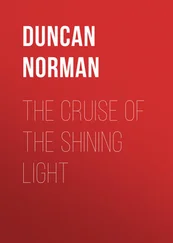“Get out of it!” he ordered abruptly.
The Indians glanced up courteously, not understanding the words, and Thompson shouted again: “Grease off, damn you!” The Indian couple glanced at us in bewilderment, and Churchill was opening his mouth to speak when suddenly, without further warning, the seaman leveled his musket and fired. The ball passed through the child and through the father’s chest; both fell dying on the beach, staining the sand with their blood. The woman shrieked and people began to run toward us from the house.
Churchill sprang to his feet and bounded to where Thompson sat, with the smoking musket in his hand. One blow of his fist stretched the murderer on the sand; he snatched up the musket, seized Thompson’s limp body under the arms, and ran, dragging him, to where the canoe lay in the wash of the sea. Setting the musket carefully against a thwart, he tossed his companion into the bilges as if he had been a dead pig, then sprang into the canoe, pushing off as he did so. Next moment he had sail on her; the little vessel was making off swiftly to the west before the gathering crowd understood what had occurred.
I rushed to the dying father and his small daughter, but perceived at once that there was nothing to be done for them. Within five minutes both expired. The moment it was ascertained that they were dead the frantic mother seized her paoniho and gashed her head in a shocking manner, while blood covered her face and shoulders. The crew of her vessel armed themselves with large stones and were beginning to gather about me threateningly when Hitihiti appeared. He grasped the situation, and the sullen murmur of the people died away as he held up an arm for silence.
“This man is my taio,” he said; “he is as innocent as yourselves! Why do you stand there chattering like women? You have weapons! Launch your canoe! I know the man who killed your master; he is an evil-smelling dog, and not one of the Englishmen will lift a hand to protect him!”
They set off at once in pursuit, but, as I learned afterwards, they were unable to come up with the fugitives. The dead were buried the same night, and Hina and Tehani did their best to comfort the poor woman, whose home was on the neighbouring island of Eimeo. The sequel to this tragedy came a fortnight later, when Tehani and I returned to our home.
Fearing to land on the west side of Tahiti, and wishing to put the greatest possible distance between themselves and Matavai, Churchill had steered his canoe through the dangerous reefs at the south end of Taiarapu and sailed on to Tautira, where Vehiatua, supposing him to be one of my friends, had welcomed him. But Thompson’s reputation had preceded him, and he found himself shunned and abhorred by all. Churchill was by this time heartily sick of his companion and desired nothing better than to be rid of him. He told me as much when he came to my house on the evening of our arrival, musket in hand.
“I’ve half a mind to shoot the fellow!” he remarked. “Hanging’s too good for him! But damn me if I can shoot a man in cold blood! I was a fool not to leave him to be dealt with by the Indians in Matavai!”
“They’d have made short work of him,” I said.
“And a bloody good job! I’m done with him. I told him to-day he could have the canoe if he’d get out of here and not come back.”
“Leave him to the Indians,” I suggested. “They’d have killed him long since had he not been with you.”
“Aye. Look—there he is now.”
Thompson was seated alone on the beach, half a cable’s length from us, with the air of a man brooding over his wrongs, as he nursed the musket between his knees.
“The man’s half mad,” growled Churchill. “You’ve a musket, Byam; best load it and keep it handy till he’s gone.”
“Are you planning to stop in Tautira?” I asked after a pause.
“Yes. I like the old chief—your father-in-law, whatever he is—and he seems to like me. He’s a fighting man, and so is the other chief, Atuanui. We were planning a bit of a war last night. He says if I help him he’ll give me a piece of land, with a fine young wife thrown in. But come—it is time we went to his house.”
Vehiatua had bidden us to witness a heiva that evening—a night dance of the kind I had seen in Tetiaroa long before. We found the grounds bright with torchlight and thronged with spectators, and when we had greeted our friends, Tehani and I seated ourselves with Churchill on the grass, on the outer fringe of the audience.
The drums had scarcely struck up when I heard an Indian shout warningly behind us, followed instantly by the report of a musket. Churchill attempted to spring to his feet, but sank down coughing beside me, the musket dropping from his nerveless hand. Women were shrieking and men shouting on all sides, and I heard Vehiatua’s voice boom out above the uproar: “Aye! Kill him! Kill him!” In the flickering torchlight I saw Thompson break away from the scuffle behind me and begin to run toward the beach with ungainly bounds, still clinging to his musket. Atuanui, the warrior chief, snatched up a great stone and hurled it with his giant’s arm. It struck the murderer between the shoulders, and sent him sprawling. Next moment the Indian warrior was upon him, beating out his brains with the same stone that had brought him down. When I returned to the house, Churchill was dead.
Since the Indians made war, and abandoned plans for war, for reasons which struck me as frivolous in the extreme, the loss of Churchill was accepted as an unfavourable omen by Vehiatua’s priests, and the expedition planned against the people of the south coast of Eimeo was given up. I was secretly glad to be freed from the duty of taking up arms against men to whom I bore no ill-will, and settled down with relief to a tranquil domestic life and my studies of the Indian tongue.
I shall not cumber this narrative with my observations on the life and customs of the Indians—their religion, their intricate system of tapu, their manner of making war, their arioi society, and their arts and sciences, all of which have been fully described by Cook, Bougainville, and other early visitors to Tahiti. But I shall do the people of Tahiti the justice to mention two of their customs, shocking in themselves, but less so when the reasons for them are made clear. I allude to infanticide and human sacrifice.
Nowhere in the world are children cherished more tenderly than in the South Sea, yet infanticide was considered by the Indians a praiseworthy act of self-sacrifice. The object of the arioi society—the strolling players whose chiefs were of the most considerable families in Tahiti—was to set an example both to chiefs and to commoners, as a warning against overpopulating the island. Should a member of the society give birth to a female child, it was killed at once, in the quickest and most painless manner, and their greatest term of contempt was vahine fanaunau—a fertile woman. The Indians had a perfect understanding of the dangers of overpopulation, and guarded against them by making large families unfashionable. Cruel as the method seems, it should not be criticized without reflecting that men increase, while the amount of habitable land on a small island remains the same.
As for human sacrifice, the ceremony was rarely performed, and then only on the altar of Oro, god of war. The victim was taken unaware and killed mercifully, by a sudden blow from behind, and he was without exception a man who, in the opinion of the chiefs, deserved death for the public good. In a land where courts, judges, and executioners were unknown, the prospect of being sacrificed to the god of war restrained many a man from crimes against society.
The people of Tahiti were fortunate in many respects—the climate, the fertility of their island, and the abundance of food to be obtained with little effort; yet they were still more fortunate, perhaps, in their lack of money or any other general medium of exchange. Hogs, mats, or bark cloth might be given as a reward for building a house or the tattooing of a young chief, but such property was perishable, and considered a gift rather than an exchange. Since there was nothing that a miser might hoard, avarice, that most contemptible of human failings, was unknown, and there was little incentive to greed. To be accused of meanness was dreaded by chief and commoner alike, for a mean man was considered an object of ridicule. By our introduction of iron, and inculcation of the principles of barter, there is no doubt that we have worked the Indians infinite harm.
Читать дальше











